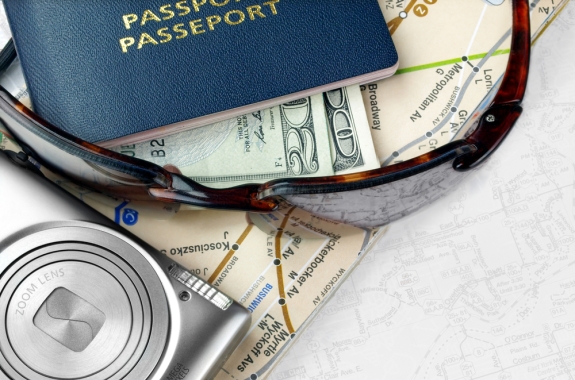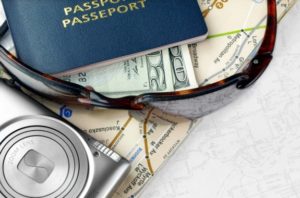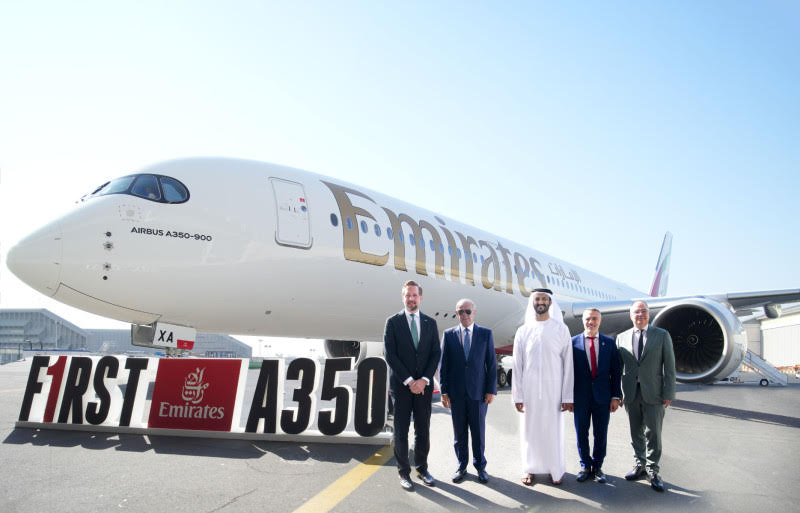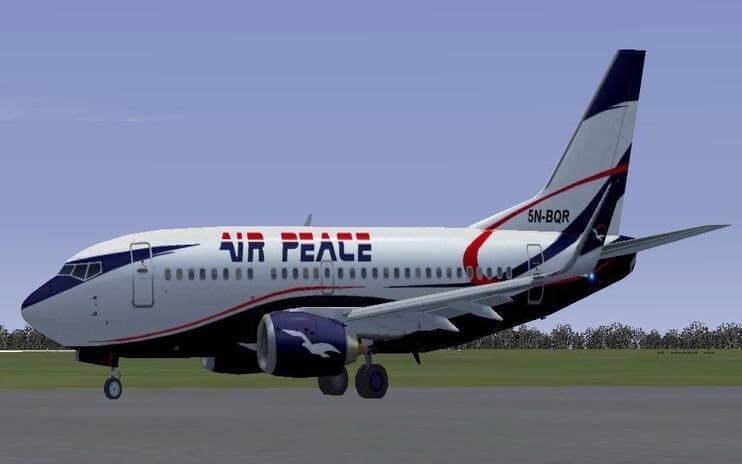Travel/Tourism
Tourism Revenue: How Domestic Travel Contributed 97% in 2016?


By Olukayode Kolawole
The data presented in the recently published hospitality report on the Nigerian hospitality sector by Jumia Travel has finally cleared the air on the argument that Nigeria doesn’t have enough tourist destinations to attract people’s interest to spend their holidays in the country instead of traveling to some popular holiday destinations abroad.
It’s fair to say that without the economic woes that plagued the country last year which placed lots of pressure on people’s spending habit, no one would have fully understood how much the country can generate from the tourism sector.
Meanwhile, the 2014 & 2015 World Travel & Tourism Council (WTTC) reports indicated that domestic travel had always contributed more than two-third of tourism’s contribution to the country’s GDP.
For instance, in 2014, domestic travel spending generated 95.8% of direct Travel & Tourism GDP compared with 4.2% for international visitor exports (money spent by foreign visitors to a country), and was forecast to grow by 2.7% in 2015 to NGN2, 544.3bn. In 2015, domestic travel increased slightly to 97% while international visitor export went below 4%.
Despite the huge revenue generated in the last 3 years, the tourism sector doesn’t seem to reflect this massive income. There are two reasons why this is so.
First, the revenue generated primarily reflects the activities of industries such as hotels, travel agents, airlines and other passenger transportation services (excluding commuter services). But it also included, for example, the activities of the restaurant and leisure industries directly supported.
Second, there was an ‘indirect’ contribution which encompassed the GDP and the jobs supported by travel & tourism investment spending – an important aspect of both current and future activity that includes investment activity such as the purchase of new aircraft and construction of new hotels; Government ‘collective’ spending, which helps travel & tourism activity in many different ways as it is made on behalf of the ‘community at large’ – e.g. tourism marketing and promotion, aviation, administration, security services, resort area security services, resort area sanitation services, etc; Domestic purchases of goods and services by the sectors dealing directly with tourists – including, for example, purchases of food and cleaning services by hotels, of fuel and catering services by airlines, and IT services by travel agents. The ‘induced’ contribution measures the GDP and jobs supported by the spending of those who are directly or indirectly employed by the Travel & Tourism sector.
Bruce Prins, a renowned hospitality consultant for over two decades shares fascinating trends that will shape the sector in 2017 (this year).
”More recreational facilities and services will be required; better reservation systems that are 24 hours and easy to action will be the deal-breaker; ease or disease of air travel will affect everything; renovation and maintenance will make a hotel, and the lack thereof will break a hotel; and social media is, and will be even more so the most powerful marketing tool,” stated Mr Bruce.
The current President of the National Association of Nigeria Travel Agencies (NANTA), Mr. Bankole Bernard offered some suggestions on how to take the travel and tourism sector to the next level. In his prescription, he mentioned four major quick fixes; government endorsement of policies that favor the industry in terms of forex request from CBN; aviation fuel supply to ease operations within the industry; improved infrastructure at airport terminals; and privatization of the aviation industry. According to him, once all of these are implemented, the sector will grow unstoppably.
There are also some insightful data on the state of e-tourism in the country. First, Nigeria is among the leading countries with the highest smartphone penetration in Africa. In 2016, there were 15.5 million smartphone users in Nigeria.
Second, the success of e-commerce in the country can also be a consequent of the increase in the number of smartphone users, which is forecast to reach 18 million users in 2017.
Third, internet penetration stood at 52% (97, 210,000) of the country’s population (186,879,760) as at June 2016.
Fourth, e-commerce is estimated to be worth US $13billion by 2018. However, the country is still lagging behind African countries such as Morocco, Egypt, and Kenya.
Fifth, globally, the number of hotel bookings made online stand at 148.3 million while the percentage of same day hotel reservations via smartphone stand at 65%.
Olukayode Kolawole is the Head of PR & Marketing at Jumia Travel NG.
Travel/Tourism
Musawa, Governor Mba Commission Enugu Christmas Village

By Dipo Olowookere
The Enugu Christmas Village has been commissioned by the Minister of Arts, Tourism, Culture, and the Creative Economy, Ms Hanatu Musawa; and the Governor of Enugu State, Mr Peter Mba.
This development officially kicked off the holiday season in the state, giving residents and others from across Nigeria and outside the opportunity to relax in an atmosphere of love, positioning Enugu as a key destination for cultural and holiday tourism.
Facilitated by Omu Resort, a leading tourism promoter in Africa, the Enugu Christmas Village is set to become the heartbeat of holiday celebrations in the state.
The company has already organised a 25-day festival at the village designed to attract residents, visitors, and dignitaries from across the region.
With its vibrant atmosphere and festive attractions, the Enugu Christmas Village boasts an array of attractions such as a waterpark, roller skating, archery, amusement rides, and much more.
At its centre is a breathtaking display of 500,000 Christmas lights, illuminating the village in a magical glow that promises to captivate visitors of all ages.
The festival goes beyond the lights and rides, offering a rich tapestry of events that celebrate the state’s cultural heritage.
Highlights include Afrobeat Concert, Praise Night, Highlife Concert Street Carnival, Cultural Parade and a Grand Fireworks Show.
One of the most anticipated moments is the Santa Street Storm, where over 100 Santa Claus figures riding tricycles will parade through the streets, distributing gifts to orphanages and the less privileged, spreading joy and goodwill.
Running from December 7 to December 31, 2024, the Enugu Christmas Festival is more than just a celebration of the holiday season. It underscores the state’s cultural vibrancy and its potential as a leading tourist destination.
The festival offers a unique opportunity for families and friends to come together, celebrate, and unwind in a festive atmosphere. It is also expected to fosters unity and showcases the rich cultural heritage of Enugu State, while promoting arts, tourism, and community well-being.
Travel/Tourism
Emirates Unveils Airbus A350-900 in Dubai

By Aduragbemi Omiyale
One of the leading airline operators, Emirates Airline, has officially unveiled its first Airbus A350-900 at an exclusive event showcase in Dubai attended by aerospace partners, government officials and dignitaries, members of the media, as well as aviation enthusiasts.
The Emirates A350 features three spacious cabin classes, accommodating 312 passengers in 32 next-generation Business Class lie-flat seats, 21 Premium Economy seats and 259 generously pitched Economy Class seats.
The latest onboard products reflect the airline’s commitment to delivering a premium passenger experience while optimising operational efficiency. The Emirates A350 is the first new aircraft type to join Emirates’ fleet since 2008.
Apart from its newly delivered A350, Emirates operates two other aircraft types around the world to 140 destinations – the widebody Boeing 777 aircraft and the iconic ‘double decker’ Airbus A380 aircraft.
The A350’s introduction will enable Emirates to expand into new destinations globally, including mid-sized airports unsuited for larger aircraft. The Emirates A350 will be delivered in two versions – one for regional routes and one for ultra long-haul routes.
The Emirates A350 takes technology to another level. Customers can now adjust their electric window blinds at the touch of a button.
The aerBlade dual blind system will feature in Business and Premium Economy Class offering two shaded options, and the aerBlade single blind systems will make a debut in Economy Class, with all blinds showing the Emirates Ghaf tree motif when closed.
Business Class on the Emirates A350 will feature 32 luxurious leather ‘S Lounge seats’, inspired by the Mercedes S Class for an exceptional travel experience. The A350 aircraft will feature brand new additions of wireless charging on the side cocktail table in Business Class, and in-seat lighting controls with 5 streams of light. The 1-2-1 seat configuration in the A350 Business Class ensures a very private, exclusive experience.
Speaking at the event, the chairman of Emirates Airline, Mr Ahmed bin Saeed Al Maktoum, said, “Today is an exciting milestone for Emirates as we showcase our first A350 and usher in a new era for our fleet and network growth.
“This aircraft sets the stage for Emirates to spread its wings farther by offering added range, efficiency and flexibility to our network, enabling us to meet customer demand in new markets and unlock new opportunities in the cities that we serve.
“Onboard, our updated interiors and seating configurations will help us deliver a more elevated and comfortable experience to travellers across every cabin class.
“The 65 Emirates A350s joining our fleet in the coming years fit into the airline’s broader plans to support our visionary leadership’s Dubai’s D33 Strategy, which will transform the city into a pivotal hub in the global economy by expanding its connectivity and reach.”
Travel/Tourism
Air Peace Employees Undergo Training at Boeing Global Learning Institute

By Aduragbemi Omiyale
Some employees of Air Peace have upgraded their aviation safety skills at a training course organised by Boeing through the Boeing Global Learning Institute (BGLI) in collaboration with Cranfield University, United Kingdom as part of a shared commitment to shaping the future of aviation leadership.
Over the years, Air Peace has recognized that a deep, unwavering commitment to safety is key to its continued success.
The programme is aimed at building upon that vision, enabling executives to lead with confidence, manage risks effectively, and create high-performing teams that prioritize safety at every level.
In the five-day in-person training, all the executives and others in the various departments of Air Peace were taught advanced safety leadership skills and gained practical tools to implement the new knowledge.
The Head of Aerospace at Cranfield University, Prof Graham Braithwaite, said, “This collaboration ensured that the training directly addresses the challenges Air Peace faces, culminating in real-world capstone projects that would have a lasting impact.”
Reinforcing this position, the Lecturer for Organisational Resilience and Change at Cranfield School of Management, Fabian Steinmann, who was excited at the great progress Air Peace made over the years, said that they are happy to learn and share knowledge and find ways to strengthen the system, making it robust and flexible to adapt to the ever-changing environment.
“Safety is at the heart of everything we do at Cranfield so the privilege we have is that we travelled around the world, picked up the good practices, learned more about the culture and the operation in various countries so we’re here to facilitate that exchange with Nigeria and Air Peace to see how we share some of the good practices and lessons learned from all around the world and translate them into their operation.”
Also, the Senior Organisational Consultant and Programme Manager at Boeing Global Learning Institute, Harry Magui, said, “The Boeing company has long recognised the importance of supporting continuous learning of our aviation partners.
“To that end, the Boeing Global Learning Institute designs and delivers numerous learning programmes to both emerging and established leaders of our partners.
“These efforts aim to develop leadership, business, and technical skills so that our partners can improve their business processes, increase operational efficiency and enable leaders to strengthen their teams to ultimately grow their business.’
Alluding to the great work Air Peace has done in making safety a pre-condition rather than just a priority, Magui said, “We’re here to partner with our great partner, Air Peace who have been phenomenal in advancing the Aviation Industry in Nigeria, so we are here to support them to harness more opportunities in the future with the Advanced Leadership in Safety Excellence Training for all its top leadership within the organization.”
The Safety Manager at Air Peace, Captain Godfrey Ogbogu, said, “This class is quite essential and we’re lucky to have our resource persons impact knowledge on us. It is a well-structured training, especially for Air Peace because of where we are now and where we hope to go in the future.
“The whole essence of this class is to reinforce what we know before and be exposed to other avenues of learning. The aviation industry is ever-changing and dynamic, and Air Peace has to be abreast of such developments.”
-

 Feature/OPED5 years ago
Feature/OPED5 years agoDavos was Different this year
-
Travel/Tourism8 years ago
Lagos Seals Western Lodge Hotel In Ikorodu
-

 Showbiz2 years ago
Showbiz2 years agoEstranged Lover Releases Videos of Empress Njamah Bathing
-

 Banking6 years ago
Banking6 years agoSort Codes of GTBank Branches in Nigeria
-

 Economy2 years ago
Economy2 years agoSubsidy Removal: CNG at N130 Per Litre Cheaper Than Petrol—IPMAN
-

 Banking2 years ago
Banking2 years agoFirst Bank Announces Planned Downtime
-

 Sports2 years ago
Sports2 years agoHighest Paid Nigerian Footballer – How Much Do Nigerian Footballers Earn
-

 Technology4 years ago
Technology4 years agoHow To Link Your MTN, Airtel, Glo, 9mobile Lines to NIN














